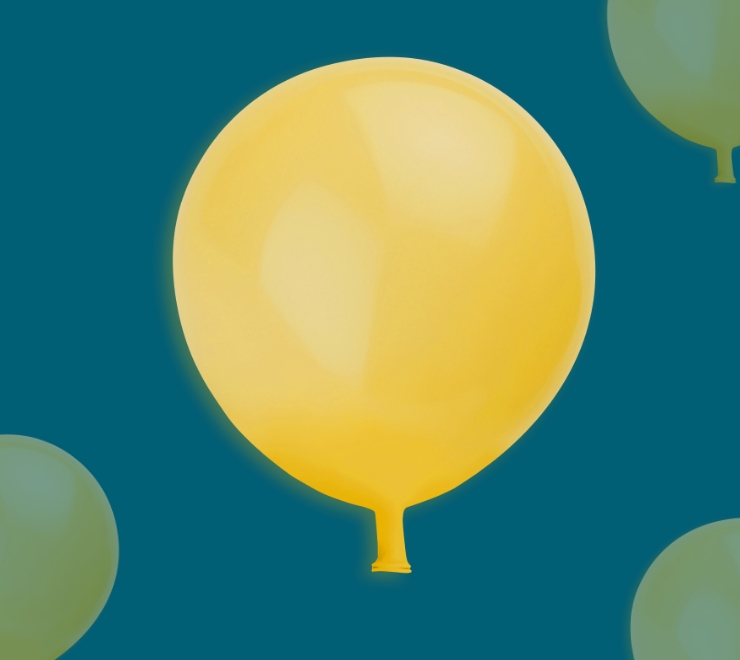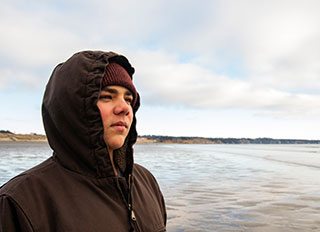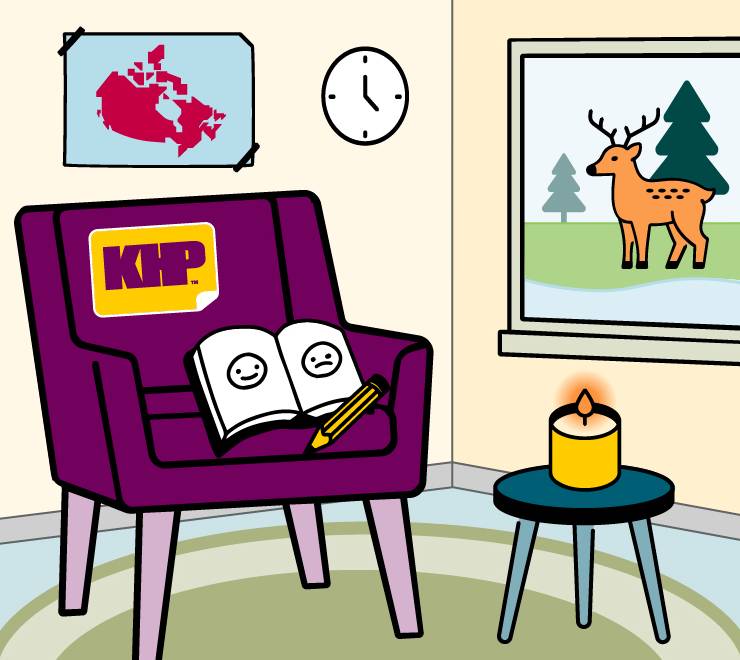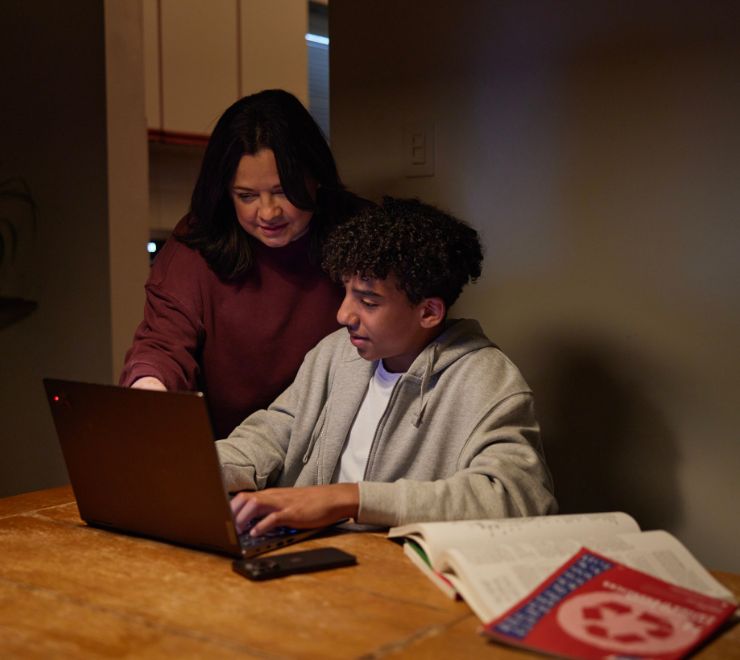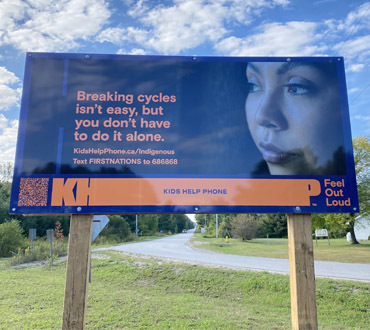It’s common for people to experience anxiety and panic from time to time. These experiences can be challenging, especially if they happen a lot or start to take over your daily life. In this story, Kids Help Phone shares information about anxiety, anxiety disorders and panic attacks. Then, we discuss coping strategies you can try to manage anxiety, panic and other difficult feelings.
You can tap on the video below to view an interpretation of this story in American Sign Language (ASL).
What is anxiety?
Anxiety can include feelings of worry, nervousness and panic. It’s different from fear, which is an immediate reaction to a perceived threat. Some levels of anxiety can be manageable and even help you make decisions, take action, etc. in your life. If anxiety starts to overwhelm and negatively impact your daily life, it could mean you’re struggling with something more intense.
What are some types of anxiety disorders?
Some of the most common anxiety disorders are:
- social anxiety disorder (excessive, persistent fear that contributes to avoidance of social situations)
- panic disorder (unexpected and repeated panic attacks)
- specific phobia disorder (an intense and unreasonable fear of one thing)
- separation anxiety (excessive fear of being away from parent(s) / caregiver(s))
- obsessive compulsive disorder (OCD) (constant uncontrollable thoughts, which contribute to certain behaviours)
For more information about anxiety disorders and ways to manage anxiety, you can explore AnxietyCanada.com.
What are some signs of an anxiety disorder?
Learning more about anxiety disorders may help you better understand what might be happening for you. Try to keep in mind panic, anxiety and anxiety disorders can be and feel different for everyone. They can also only be diagnosed by a doctor, psychologist or psychiatrist. Some signs of an anxiety disorder include:
- constant worrying
- a desire to be perfect
- fear of making a mistake
- obsessing about dying
- crying a lot
- having nightmares
- blanking out or freezing up when something stressful happens
- worrying that something horrible will happen to people you care about
- worrying you can’t determine what’s real and what’s not
- feeling like you can’t control or are losing control of your thoughts, feelings, body, etc.
- avoiding friends
- being terrified of presenting in class or other group settings
You can reflect on your feelings and find ways to manage anxiety and panic by taking Kids Help Phone’s questionnaire.
What is a panic attack?
A panic attack is a sudden, overwhelming feeling of fear / discomfort. Panic attacks often last less than 10 minutes, but can feel much longer. Something upsetting or scary may contribute to the onset of a panic attack. Sometimes, they happen for no clear reason at all.
What are some signs of a panic attack?
Panic attacks usually include four or more of the following signs:
- racing / pounding heart
- sweating
- shaking / trembling
- shortness of breath
- a feeling of choking or being smothered
- chest pains
- chills / hot flashes
- dizziness / light headedness
- feeling like you’re outside of your body
- numbness / tingling sensations
- fear of losing control
- fear of dying
What are some ways to manage anxiety and panic?
There are many different things you can try to manage anxiety and panic. Different combinations of options work for different people. Here are two common examples of supports:
Counselling or therapy
Counselling or therapy is a space where you can communicate about what’s going on for you with a trained professional (e.g. a psychiatrist, psychologist, social worker, counsellor, etc.). They can help you understand and navigate the factors that may be contributing to your thoughts, feelings and behaviours.
Medication
Medication can help with some anxiety disorders. You can contact a doctor / psychiatrist if you’re wondering if medication is an option for you. If a doctor / psychiatrist gives you medication, try to take it exactly as prescribed. You can book follow-up appointments with a doctor / psychiatrist if you have concerns about your medication and to help ensure it’s working for you. It may also be helpful to keep track of how you’re feeling each day.
What are some ways to manage anxiety and panic in the moment?
You can browse the following coping strategies for ways to navigate your feelings and get support in the moment:
- try a breathing exercise
- repeat an affirmation to yourself (e.g. “Even if it feels difficult, I can manage these feelings,” etc.)
- make a list of things you’re worried about and identify one helpful action you could take to address them
- imagine a scenario / task you’re feeling anxious about going well in advance
- do something you enjoy to redirect your thoughts, behaviours, etc. away from feelings of anxiety / panic (e.g. journal, make art, spend time in nature, play a game, etc.)
- take a break from social media / screen time if you need to
- get the amount of sleep / rest that feels best for you
- share your feelings with someone you trust (e.g. a parent / caregiver, teacher, counsellor, Elder, social worker, friend, etc.)
You can learn more about and find ways to manage anxiety and panic that work for you. For free, private, 24/7 support with anything on your mind, you can contact Kids Help Phone.













